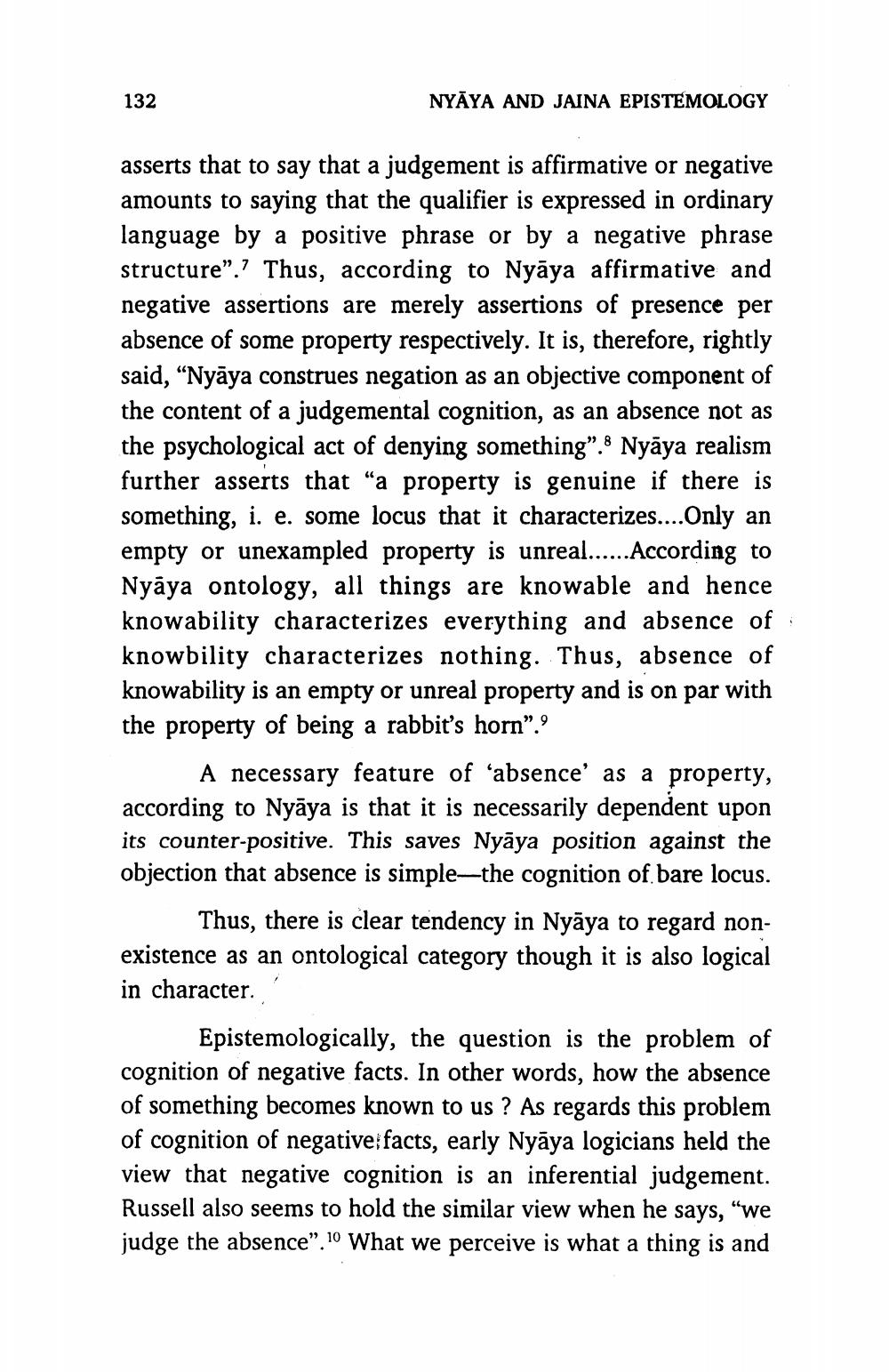________________
132
NYĀYA AND JAINA EPISTEMOLOGY
asserts that to say that a judgement is affirmative or negative amounts to saying that the qualifier is expressed in ordinary language by a positive phrase or by a negative phrase structure”.? Thus, according to Nyāya affirmative and negative assertions are merely assertions of presence per absence of some property respectively. It is, therefore, rightly said, “Nyāya construes negation as an objective component of the content of a judgemental cognition, as an absence not as the psychological act of denying something”. Nyāya realism further asserts that “a property is genuine if there is something, i. e. some locus that it characterizes....Only an empty or unexampled property is unreal......According to Nyāya ontology, all things are knowable and hence knowability characterizes everything and absence of: knowbility characterizes nothing. Thus, absence of knowability is an empty or unreal property and is on par with the property of being a rabbit's horn".!
A necessary feature of 'absence as a property, according to Nyāya is that it is necessarily dependent upon its counter-positive. This saves Nyāya position against the objection that absence is simple—the cognition of bare locus.
Thus, there is clear tendency in Nyāya to regard nonexistence as an ontological category though it is also logical in character.'
Epistemologically, the question is the problem of cognition of negative facts. In other words, how the absence of something becomes known to us ? As regards this problem of cognition of negative facts, early Nyāya logicians held the view that negative cognition is an inferential judgement Russell also seems to hold the similar view when he says, “we judge the absence”. 10 What we perceive is what a thing is and




